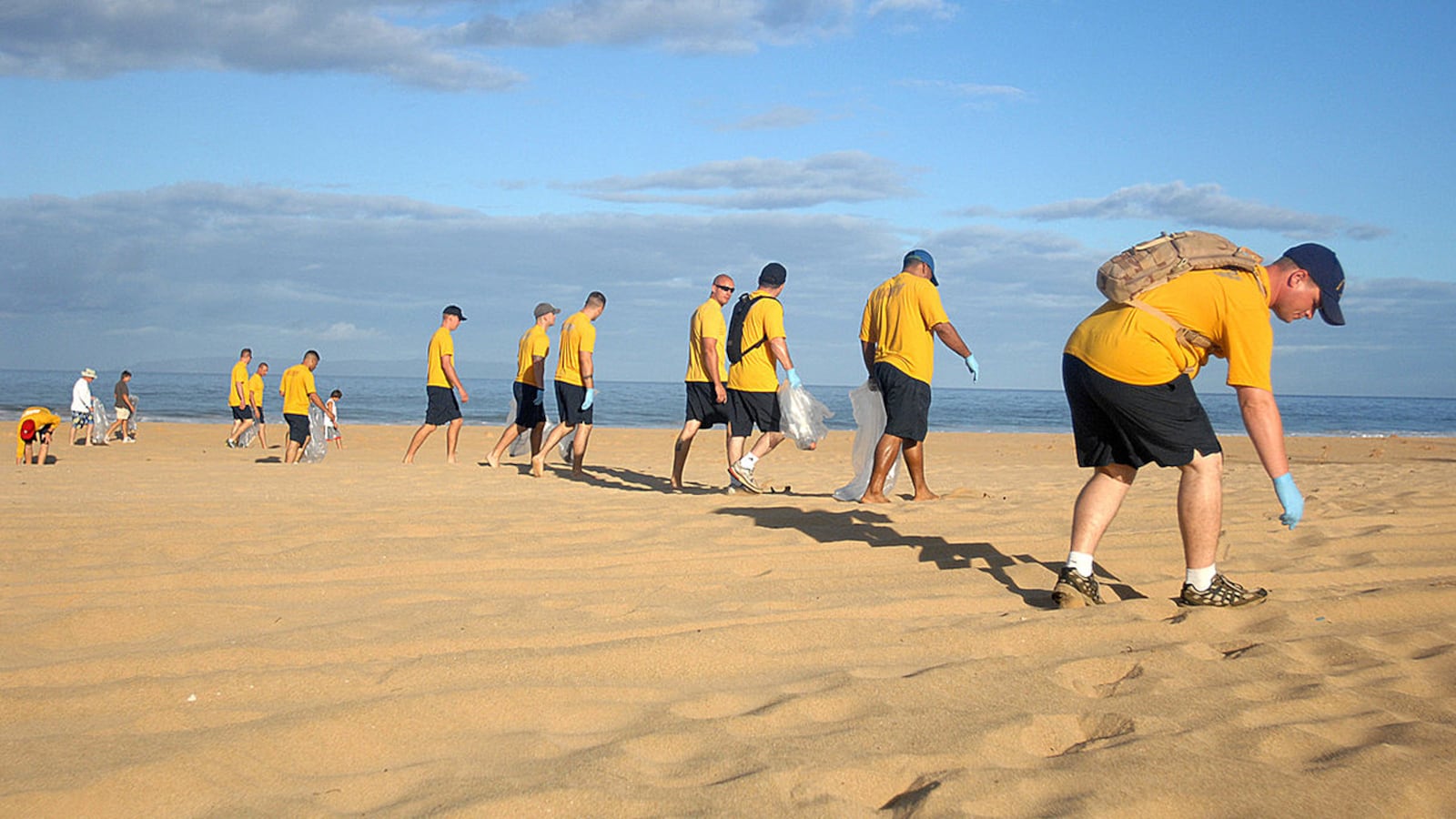This summer, identify the charitable adventure that’s right for you and your group, and get there with the All-New Land Rover Discovery.
Anytime you travel with others, it tends to be an experience that challenges and ultimately strengthens existing bonds, whether between family members, couples, or best friends. This is true whether you’re battling a language barrier together, trying to decipher an actual map (because there’s no connectivity and Google Maps is useless), or discovering the best pulled pork sandwich in North Carolina. But it is especially true if you are traveling with the goal of volunteering in mind.
What’s more, volunteering offers an opportunity to experience a destination in ways most travelers never will—while finding connections with your fellow “voluntourists” that will last a lifetime. It allows you to penetrate a culture almost immediately. There are other perks, too. For example, sign on for a trip with the Sierra Club and you might get access to park areas that are otherwise restricted.
But how can you combine a road trip with volunteering, you might ask? One option is to start or end your trip with a few days (or longer) in a single destination. You might also choose to find a different opportunity in each destination you visit: spend an afternoon at a soup kitchen here, then loop up with a local chapter of Habitat for Humanity in your next stop. Whatever you decide, it requires significant upfront research. Here are some tips, resources, and ideas for your voluntourism road trip.


With the growth of voluntourism has come an increased awareness of the potential pitfalls of volunteering. In our desire to do good, are we actually doing harm? Would it be more helpful to send money? These are valid questions, but it is possible to be sure your efforts are making a positive impact.
The first step is being honest about your skills. Are you a carpenter? Great! Opportunities that involve putting your expertise to use will be a great fit. If, on the other hand, your hammering skills leave something to be desired, you might want to consider something else. Are you an ace cook? Consider a soup kitchen. Do you love the great outdoors? Those park trails need maintenance -- or maybe you should look into WWOOFing? (See below).
You also want to be sure that the volunteer organization is one you can trust. This is more of an issue when it comes to international opportunities, but it’s a good idea to do some research even when trekking around the States. Sites like Charity Navigator and Charity Watch are a good starting point. You can (and should) also call and talk to someone, from the organization or a past volunteer. Ask lots of questions!
Finally, you want to make sure that the organization really wants volunteers. While volunteering is definitely a noble venture, it also requires some infrastructure. Organizations like Habitat for Humanity are very capable of handling volunteers, even those with limited skill sets. It may not be sexy work, but someone’s got to dig ditches, and spackling is something almost everyone can do. On the other hand, a smaller organization might be overwhelmed when you and your brood sweep in. Again, ask questions! If you ask whether they prefer money or volunteers and they say money, at least you know.
A few good resources:
Corporation for National Community Service

WWOOF stands for Worldwide Opportunities on Organic Farms and the organization connects willing volunteers -- known as WWOOFers! -- with 2,178 farms across America. You can typically expect to spend about a half day getting your hands dirty; in exchange, you’ll get room and board for the night (though stays of a week or longer are readily available, as well). Even better, the organization makes it super easy to find the right opportunity for you. You can search by location, length of visit, number of visitors, lodging type, languages spoken, and more. Here are a few particularly alluring WWOOF spots:

Slyva, North Carolina: The Washington Post called this tiny town in between the Great Balsam and Plott Balsam mountains “an Asheville alternative for the crowd-weary.” Sold!
San Antonio, Texas: Get a mix of farm life and urban life — and see the Alamo!

Cave Junction, Oregon: The nearby caves are also known as the “Marble Halls of Oregon,” a good hint at how beautiful they are.

Highland, New York: A quick drive from New York City and proximal to the CIA (that’s the Culinary Institute of America, where rising chefs will cook you dinner).
Palmdale, California: In LA County, Palmdale is separated from the City of Angels by the San Gabriel Mountains. Don’t forget your hiking shoes!






